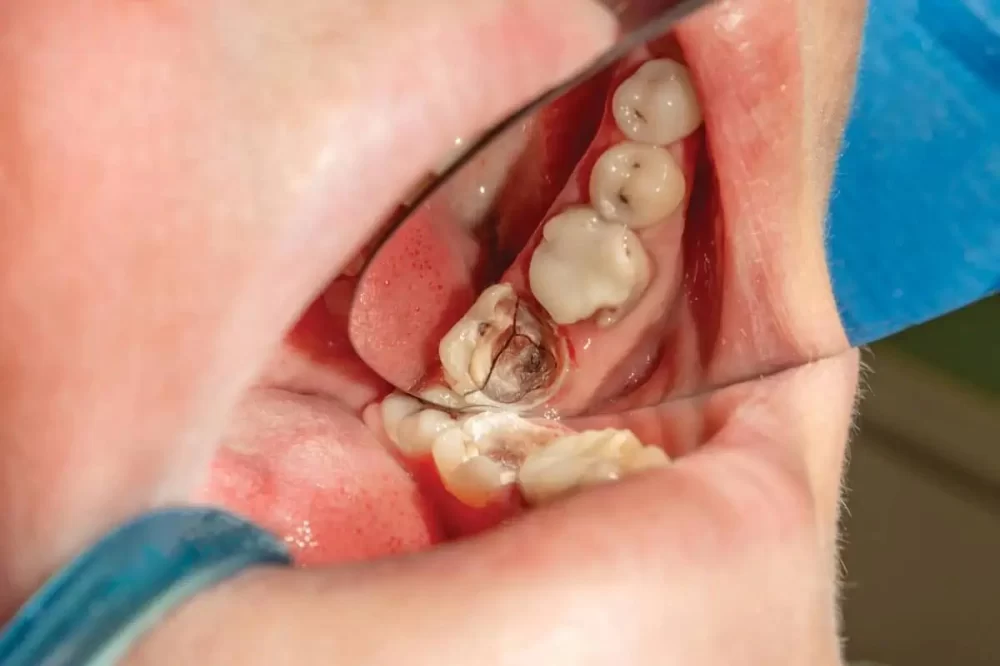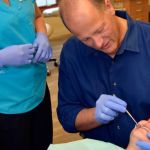
- Common-Causes-of-Teeth-Cracking-and-Chipping
- The-Role-of-Enamel-Weakness-in-Tooth-Damage
- Impact-of-Dental-Trauma-and-Biting-Habits
- Preventing-Teeth-from-Cracking-and-Chipping
- Real-Life-Stories-and-Professional-Insights
1. Common Causes of Teeth Cracking and Chipping
Many people wonder what causes teeth to crack and chip easily. The answer lies in a combination of factors that weaken the structural integrity of teeth, making them more vulnerable to fractures and chips. Understanding these causes helps in taking proactive steps to protect your smile.
One of the primary causes is trauma to the mouth, whether from an accident, sports injury, or biting down on something hard like ice or nuts. Additionally, teeth naturally endure daily stress from chewing, and over time, this wear can contribute to small fractures that grow larger.
Underlying dental conditions such as cavities or untreated tooth decay weaken tooth enamel, making the surface fragile. Similarly, habits like grinding or clenching teeth—often linked to stress—exert excessive pressure, leading to cracks or chips.
1.1 Environmental and Lifestyle Factors
Acidic foods and beverages erode enamel, increasing susceptibility to damage. Poor oral hygiene may also allow decay to develop unnoticed. Additionally, age-related wear and tear naturally reduces enamel thickness, increasing the risk.
2. The Role of Enamel Weakness in Tooth Damage
Enamel is the hard, outer layer of the tooth that protects the inner dentin and pulp. When enamel is compromised, teeth lose their resilience against mechanical forces.
Weak enamel can be caused by genetic factors, excessive exposure to acids from diet or stomach reflux, and insufficient fluoride exposure. Once enamel thins or develops micro-cracks, teeth are more prone to chipping with even minor impacts.
2.1 How Enamel Erosion Progresses
The process begins with subtle surface changes that often go unnoticed. Over time, enamel softens and cracks deepen, which can lead to visible chips or pain when biting. Protecting enamel integrity is therefore essential to prevent early damage.
3. Impact of Dental Trauma and Biting Habits
Accidental injuries during sports, falls, or other incidents can cause sudden cracks or chips. Sometimes, even routine habits like chewing on pens or using teeth as tools contribute to damage.
Bruxism, or teeth grinding, is particularly damaging because it places continuous pressure on teeth. Many are unaware they grind their teeth, especially during sleep, which slowly fractures enamel and weakens teeth.
3.1 Identifying and Managing Risky Habits
Recognizing habits such as nail-biting, ice-chewing, or grinding is crucial. Custom dental guards can protect teeth from grinding damage, while behavior changes and stress management techniques reduce the habit’s frequency.
4. Preventing Teeth from Cracking and Chipping
Prevention starts with good oral hygiene and regular dental check-ups to detect early enamel erosion or small cracks. Using fluoride toothpaste and avoiding excessive acidic foods helps maintain enamel strength.
Wearing protective gear like mouthguards during contact sports shields teeth from trauma. For those prone to grinding, dental night guards prescribed by dentists offer effective protection.
Dietary choices matter too: consuming calcium-rich foods supports tooth structure, while limiting sugary and acidic intake prevents enamel damage.
4.1 When Damage Occurs: Seeking Professional Care
If you notice chips, cracks, or sensitivity, early dental intervention can prevent worsening. Treatments like bonding, veneers, or crowns restore damaged teeth and protect against further fractures.
5. Real-Life Stories and Professional Insights
Jessica, a 34-year-old avid runner, experienced sudden chipping after accidentally biting on a hard seed. Initially unsure of the cause, her dentist explained that mild enamel erosion combined with the impact caused the chip. After receiving bonding treatment and a custom night guard to address her grinding habit, Jessica’s teeth stabilized and further damage was prevented.
Dental professionals emphasize that understanding what causes teeth to crack and chip easily allows patients to make informed decisions. For personalized advice and access to protective dental products, Dentistry Toothtruth offers a trusted resource where you can find the best solutions tailored to your needs.
Taking action early and adopting protective habits ensures your teeth stay strong and intact for years to come.







 Bicknell Dental Care, Ltd.5.0 (59 review)
Bicknell Dental Care, Ltd.5.0 (59 review) Advantage Dental+3.0 (143 review)
Advantage Dental+3.0 (143 review) Children's Dental Health of Plymouth Meeting4.0 (352 review)
Children's Dental Health of Plymouth Meeting4.0 (352 review) Beautiful Smilez Dentistry5.0 (14 review)
Beautiful Smilez Dentistry5.0 (14 review) Renew Smiles Dental Implant Center – Surprise0.0 (0 review)
Renew Smiles Dental Implant Center – Surprise0.0 (0 review) Associated Orthodontists - Joliet4.0 (132 review)
Associated Orthodontists - Joliet4.0 (132 review) The Importance of Oral Health Education During Pregnancy for a Healthy Pregnancy
The Importance of Oral Health Education During Pregnancy for a Healthy Pregnancy Best Tips for Brushing Your Teeth Properly for Healthy Gums: Essential Techniques for Oral Health
Best Tips for Brushing Your Teeth Properly for Healthy Gums: Essential Techniques for Oral Health Why Skipping Dental Checkups Can Lead to Bigger Oral Health Problems
Why Skipping Dental Checkups Can Lead to Bigger Oral Health Problems Advantages of Porcelain Dental Restorations
Advantages of Porcelain Dental Restorations How Can Diabetes Cause Tooth and Gum Problems? Preventing and Managing Oral Health Issues
How Can Diabetes Cause Tooth and Gum Problems? Preventing and Managing Oral Health Issues Healthy Habits for Promoting Good Oral Health and Hygiene: Tips for a Healthy Smile
Healthy Habits for Promoting Good Oral Health and Hygiene: Tips for a Healthy Smile